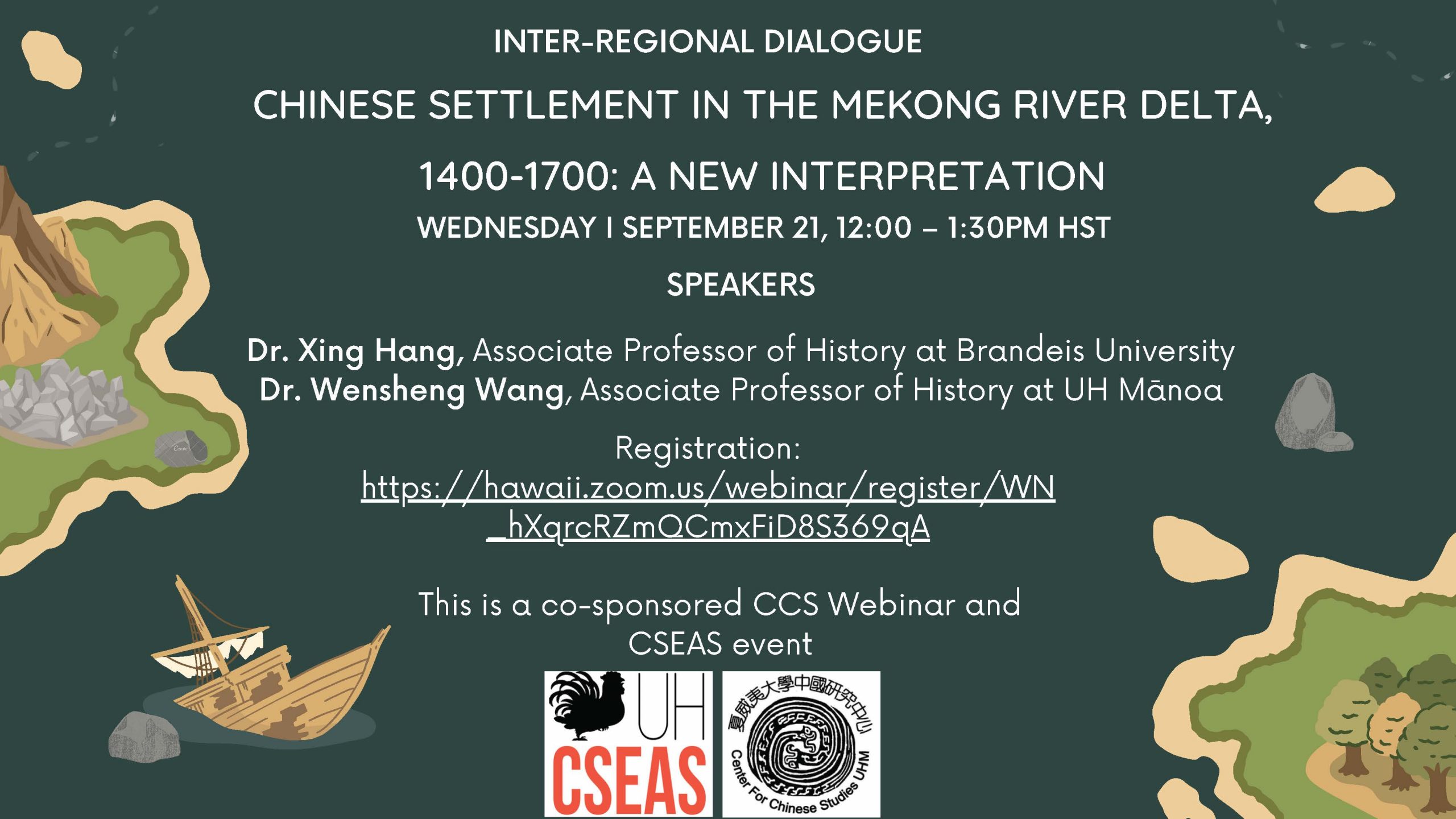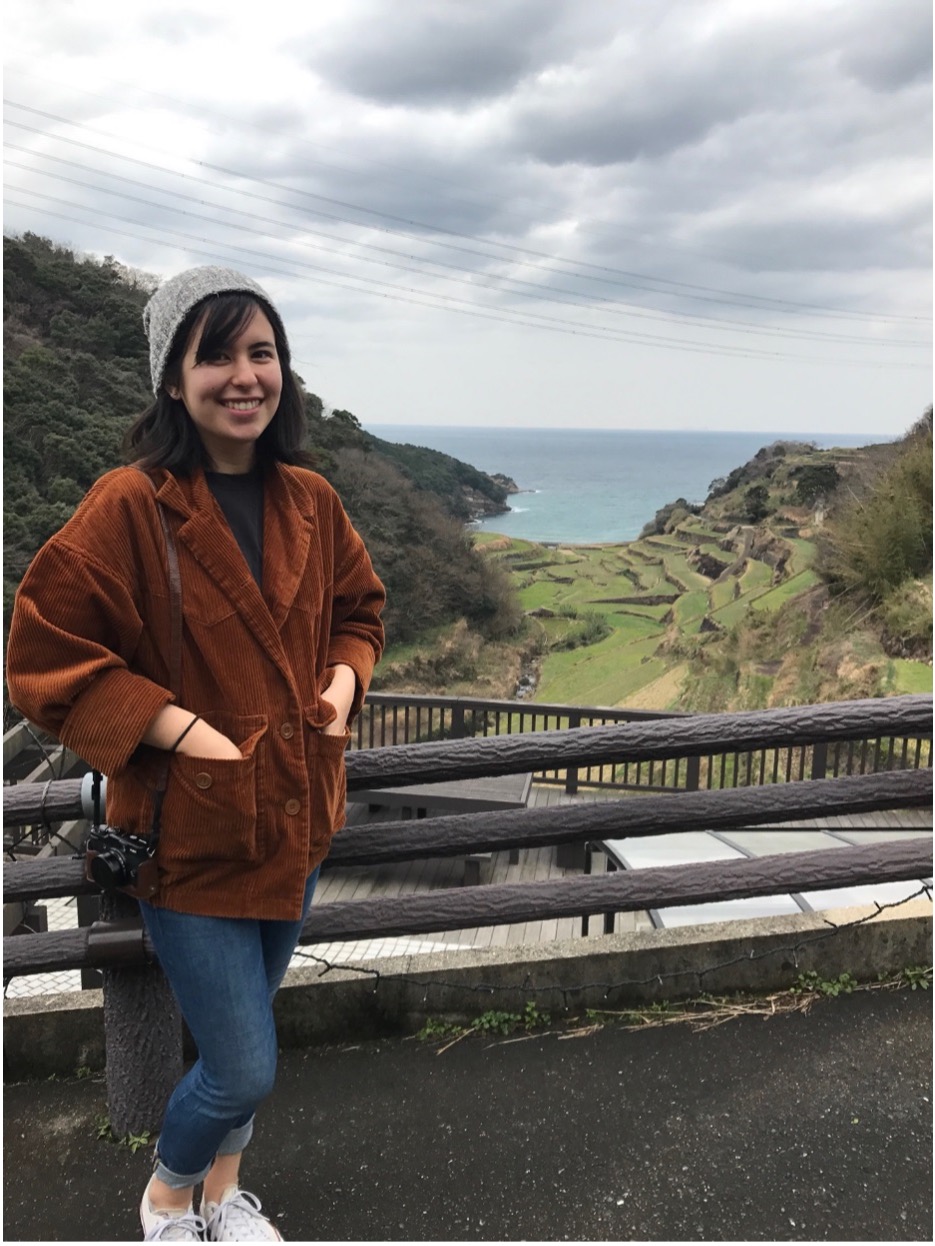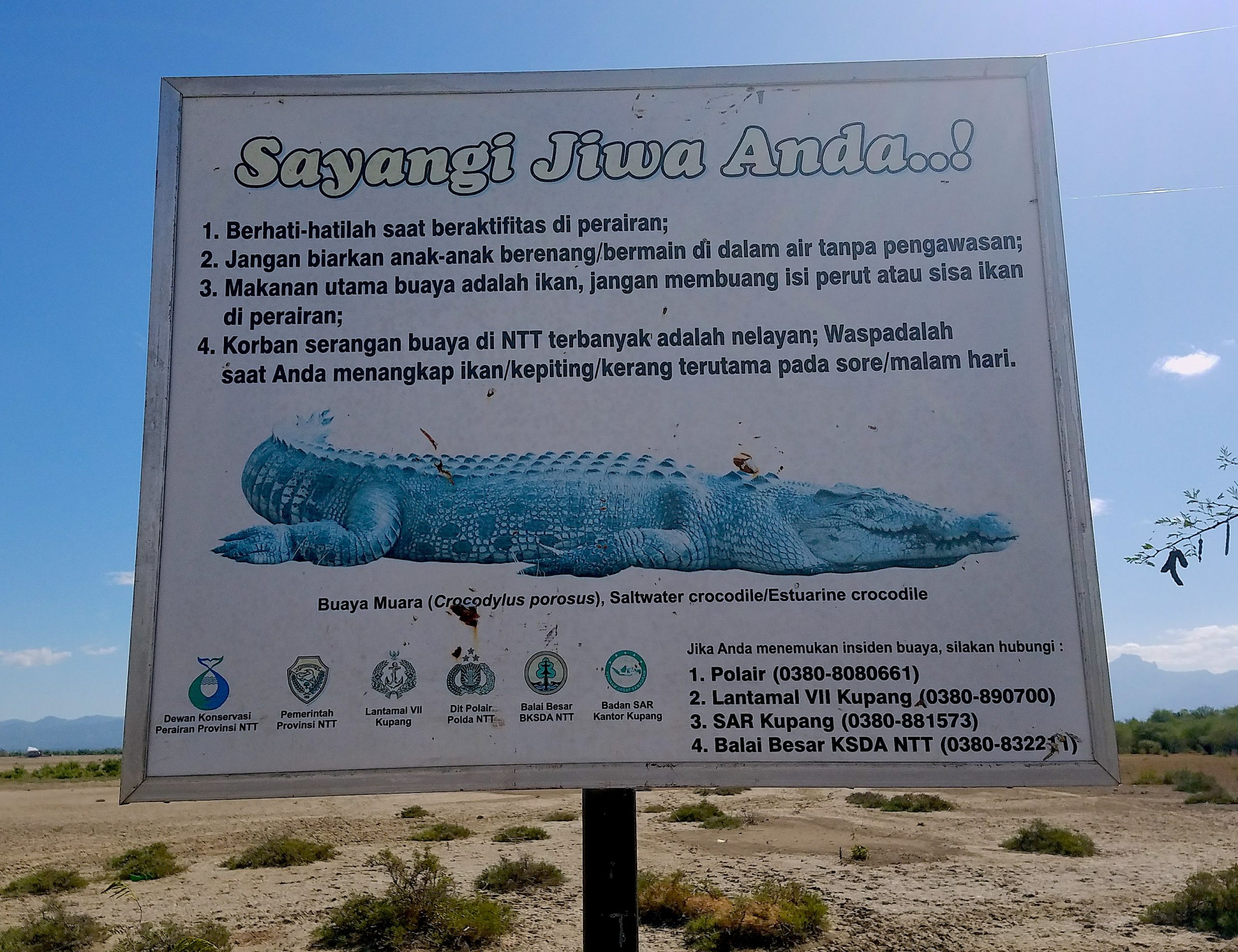
Chinese Settlement in the Mekong River Delta
1400-1700: A New Interpretation

Join us September 21st from 12-1:30pm (online) for a talk on “Chinese Settlement in the Mekong River Delta, 1400-1700: A New Interpretation” with Dr. Xing Hang and Dr. Wensheng Wang. It is commonly assumed that a sustained Chinese presence in the Mekong River Delta first occurred during the late seventeenth century, when Ming loyalist refugees fleeing from their homeland sought and received permission from the Nguyen lord of Cochinchina, in present-day central-southern Vietnam, to settle down and open up the land. In fact, a close examination of primary documents, some of them rarely utilized, reveals, the Chinese presence in the delta long preceded the seventeenth century. Moreover, the Ming loyalists themselves were independent actors who participated in the scramble for this sparsely populated frontier through cooperation and competition with Cochinchina, Cambodia, and Siam, as well as strategic submission to one or more of the three state actors. At the same time, they faced opportunities and constraints in the politics of their homeland, including the triumph of the Manchus and China’s reemergence as a naval power. Through an examination of Chinese settlement in the Mekong Delta, this talk highlights how they reflected and contributed to the “Chinese century” in eighteenth-century Southeast Asia. Register for the event here: https://hawaii.zoom.us/webinar/register/WN_hXqrcRZmQCmxFiD8S369qA
Co-sponsored by the Center for Southeast Asian Studies and the Center for Chinese Studies
About the Speakers
Dr. Xing Hang (Brandeis University)

Dr. Xing Hang specializes in the Zheng organization, Ming-Qing transition, and overseas Chinese nationalism and identity. Recently, his work has become focused on Chinese communities in Southeast Asia from the 17th to 21st centuries. Dr. Hang achieved his PhD at the University of California-Berkeley. Learn more about Dr. Hang here.
Dr. Wensheng Wang (UH Manoa)
Dr. Wensheng Wang specializes in Ming-Qing China. His research interests include empire building, cultural politics, intellectual change, social movements, popular religion, maritime interactions, and foreign relations. Dr. Wang achieved his PhD at the University of California, Irvine. Learn more about Dr. Wang here.




